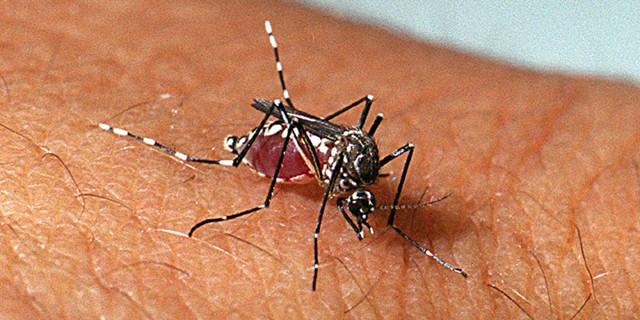The COVID-19 pandemic has had an impact on care with respect to neglected tropical diseases, which is beginning to report an increase in deaths, although hospitalizations are declining.
In 2020, the malaria death rate increased by 82.55%, despite a 29.3% decrease in hospitals. Diseases such as visceral leishmaniasis and leptospirosis also recorded an increase in mortality of 32.64% and 38.98%, respectively. The number of hospitalizations for these diseases decreased in the period, declining by 32.87% and 43.59%.
Dengue recorded a 29.51% increase in hospitalization and 14.26% in mortality. The data is part of a study led by researchers Nicholas Lisboa Coda Dias and Stefan Oliveira of the Federal University of Oberlandia. and Alvaro A. Facini Martinez of the University of Cordoba.
They compared data from the Hospital Information System of the Unified Health System (SIH/SUS) for the first eight months of 2020 with average values for the same period from 2017 to 2019. According to the researchers, the decline in hospitalizations is a result of the epidemic and people’s fear of seeking care. health during this period.
In the assessment of the Brazilian Society of Tropical Medicine (SBMT), there was an increase in the number of cases of these diseases during the pandemic. “There has been a decrease in reported cases and an increase in the death rate,” the entity’s head, Julio Croda, told Agência Brasil.
He noted that “there is a lack of assistance for people affected by these diseases who are generally more at risk.”
In Julio Croda’s assessment, Brazil fell 10 to 20 years in the fight against these diseases. According to him, it will be necessary to rebuild health services as all national control programs for these diseases have had some effect. It is also believed that the curve of reduction in incidence maintained by the state and deaths associated with these diseases tend to stabilize until 2030.
“We lost a decade in the fight against these diseases, mainly because of the epidemic, the lack of help, the lack of early diagnosis and treatment,” the specialist said.
Agência Brasil sought comment on Cruda’s statement, and the Health Ministry did not respond until the matter was closed.
The head of the SBMT stated that after 15 years, there has been a decrease in tuberculosis notifications worldwide and an increase in the number of deaths. In Brazil, it was no different. TB is the neglected disease responsible for the largest number of deaths among the most vulnerable populations, Croda says.
A report by the Pan American Health Organization (PAHO), released in October 2021, reported that tuberculosis services were among those stopped by the COVID-19 epidemic in 2020. The impact on this disease was particularly severe, and in 2020, 1.5 million were People died from tuberculosis all over the world.
The World Health Organization estimates that 4.1 million people currently suffer from tuberculosis, but have not been diagnosed with the disease or have not officially reported it to national authorities. In 2019, the number of people with tuberculosis reached 2.9 million.
More than 1.7 billion people worldwide suffer from some form of neglected tropical disease.
According to the World Health Organization (WHO), it adds up to a variety of infectious diseases that predominate in tropical and subtropical conditions in 149 countries, killing millions of people and costing developing economies billions of dollars each year.
The World Neglected Tropical Diseases Day, which is remembered today (30th), was established in 2019, by a decision of the World Health Assembly, and this is the third year of observance of this day, amid the COVID-19 pandemic.
In a note issued today, Marcelo Wada, zoonoses and vector-borne diseases surveillance coordinator at the Health Surveillance Secretariat of the Ministry of Health, stated that the ministry is investing in monitoring these diseases and implementing measures to achieve them. eliminate. Or control that group.
“There are many challenges to the eradication of NTDs, including climate change, and zoonotic and environmental threats, emerging to public health. We will advance strategies to control these diseases,” he said.
The so-called neglected or forgotten diseases are contagious diseases, many of which are parasitic, and mainly affect the poorest population with limited access to health services, especially people living in remote rural areas and slums.
According to the World Health Organization, they are part of a diverse group of 20 priority diseases of parasitic, bacterial, viral and fungal origin. They cause pain and disability, and have lasting social, economic and health consequences for individuals and societies. It prevents children from going to school and adults from going to work, and it plunges societies into poverty and inequality. People with the disabilities caused by these diseases often experience stigma in their communities, which makes it difficult to obtain needed care and leads to social isolation.
In Brazil, leishmaniasis, tuberculosis, Chagas disease, malaria, schistosomiasis, hepatitis, lymphatic filariasis, dengue and leprosy are among the major neglected diseases. They occur in almost the entire region. More than 90% of malaria cases occur in the northern region and there are outbreaks of lymphatic filariasis and onchocerciasis. The northern and northeastern regions have the lowest Human Development Index (HDI) and the highest number of NTDs are concentrated.
The observance of this year’s World Neglected Tropical Diseases Day (NTDs) by the World Health Organization began on the twenty-sixth day, under the theme “Achieving equity in health to end neglect of poverty-related diseases”. The Foundation urged its members to focus on strengthening interventions to promote equitable health services for all.

“Wannabe internet buff. Future teen idol. Hardcore zombie guru. Gamer. Avid creator. Entrepreneur. Bacon ninja.”

